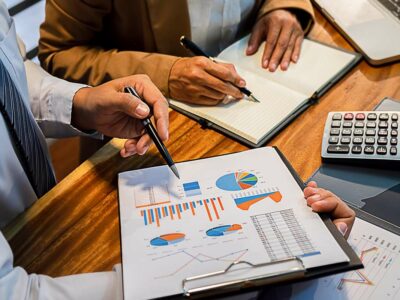
But it wasn’t until almost two decades later, with the launch of Bitcoin in January 2009, that blockchain had its first real-world application. Of course, the records stored in the Bitcoin blockchain (as well as most others) are encrypted. This means that only the person assigned an address can reveal their identity. As a result, blockchain users can blockchain in accounting remain anonymous while preserving transparency.
- There are many blockchain applications and start-ups in this field, but there are very few that are beyond the proof of concept or pilot study stage.
- If you have ever spent time in your local Recorder’s Office, you will know that recording property rights is both burdensome and inefficient.
- Blockchain is a powerful tool against financial fraud, offering a secure and transparent method of recording transactions.
- The immutable ledger eliminates the possibility of changes and is deleted once the finance-relevant operation is recorded.
- Its integration with the Internet of Things (IoT) devices holds the potential to automate real-time data collection, enhancing accuracy and minimizing manual input errors.
What is Blockchain Accounting?

In an increasingly digital profession, data security has become one of the most critical challenges facing finance and accounting professionals today. Stay up to date with practical guidance to help you mitigate these risks and strengthen your security posture. The uptick in businesses exploring how to adopt blockchain technology continues. As B2B crypto payments become mainstream, blockchain adoption for business transactions will increase.

What Does This Have To Do With the Accountancy Profession?
You can find out more about the tax laws for digital assets by the IRS here. Tax authorities can access real-time financial data, making tax preparation and filing faster and more efficient. Auditors can also use blockchain to auto-verify records instantly instead of manually cross-checking data. Blockchain technology is a system of storing and transferring data Bookkeeping for Etsy Sellers that benefits the Accounting industry. Blockchain is a distributed and decentralised digital ledger that securely records transactions across multiple computers.
Data Privacy and Security:

The settlement and clearing process for stock traders can take up to three days (or longer if trading internationally), gross vs net meaning that the money and shares are frozen for that period. To see how a bank differs from blockchain, let’s compare the banking system to Bitcoin’s blockchain implementation. Generating these hashes until a specific value is found is the “proof-of-work” you hear so much about—it “proves” the miner did the work.

Cybersecurity and other technical challenges
Since all data is accessible, businesses trace the history of any transaction at any time and offer a level of transparency that is difficult to attain through traditional systems. This transparency is particularly valuable in highly regulated industries that need to build trust with investors and clients. For businesses, this enhances data security and reduces the risk of fraud.
- Using blockchain allows brands to track a food product’s route from its origin, through each stop it makes, to delivery.
- It cuts out the intermediaries, lowers the chances of mistakes, and shows the latest data.
- The Accounting Blockchain Coalition (ABC) is a valuable resource for accountants seeking to learn about blockchain technology and its applications.
- Many experts believe that blockchain can significantly impact the accounting field.
- Blockchain’s integration into accounting heralds a transformative era for financial processes.
- Each transaction is recorded on an immutable ledger, providing real-time visibility into the movement of goods and financial transactions.